MercoPress. South Atlantic News Agency
Tag: aquaculture
-
Friday, August 4th 2023 - 10:00 UTC
Supreme Court rules Falklands aquaculture will undergo judicial review
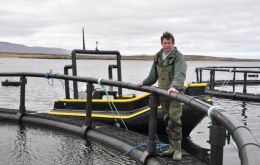
The decision of the Executive Council made on March 29, 2022, to not allow large-scale aquaculture in the Falkland Islands is to undergo a judicial review following a judgment by Chief Justice James Lewis after a preliminary hearing in the Supreme Court on July 28, with the judgment delivered on August 3.
-
Wednesday, August 4th 2021 - 08:17 UTC
Decadence of Uruguay's fishing industry: from a catch of 147,000 tons to a mere 50,000 tons
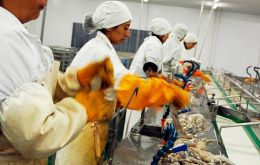
The decadence and complicated situation of Uruguay's industrial fishing sector was exposed by Senator Gustavo Penadés in the Upper House as well as the need for urgent public support to help the country take advantage of the many aquatic resources in rivers, lagoons and the sea, the ocean.
-
Saturday, December 7th 2019 - 09:40 UTC
Falklands to assess development of a near-shore aquaculture

A detailed assessment is to be carried out into the potential development of an aquaculture industry in the Falkland Islands, it was announced by the government. The proposal is at a very early stage and the Falkland Islands Government needs to improve its understanding of the industry before making a commitment to any go-ahead.
-
Thursday, February 4th 2016 - 18:19 UTC
Toxic algae bloom in south Chile threatening salmon farms

Chilean aquaculture company Multiexports Food reported that due to the harmful algal bloom (HAB) recorded in various areas of the southern Regions X and XI of Chile, their production centers of Huyar and Lligua have suffered “significant fish mortality,” which has not been quantified yet.
-
Wednesday, November 19th 2014 - 09:49 UTC
Great future for aquaculture forecasts FAO; record output of 66.5m tons in 2012

Fish farming will likely grow more than expected in the coming decade, offering a chance for improved nutrition for millions of people, especially in Asia and Africa, according to a new report, from FAO.
-
Wednesday, May 21st 2014 - 06:58 UTC
FAO warns fisheries and aquaculture threatened by harmful practices and poor management
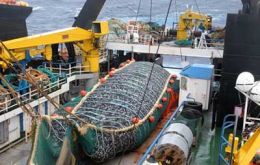
More people than ever before rely on fisheries and aquaculture for food and as a source of income, but harmful practices and poor management threaten the sector’s sustainability, says a new report published by FAO.
-
Thursday, February 27th 2014 - 03:19 UTC
Booming world fish trade generating more wealth than ever, says FAO report
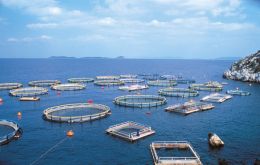
The booming world fish trade is generating more wealth than ever before, but countries must help small-scale fishers and fish farmers benefit too, says FAO.
-
Thursday, February 6th 2014 - 04:58 UTC
Aquaculture will provide close to two thirds of global food fish by 2030, says FAO

Aquaculture, or fish farming, will provide close to two thirds of global food fish consumption by 2030 as catches from wild capture fisheries level off and demand from an emerging global middle class, especially in China, substantially increases.
-
Tuesday, October 2nd 2012 - 20:07 UTC
UN aquaculture initiative to help low-income countries fight hunger

A United Nations-backed initiative that will form partnerships among governments, development agencies and universities has been launched to better understand how aquaculture can help low-income countries fight hunger.
-
Monday, November 14th 2011 - 17:13 UTC
FAO: Aquaculture in 2012 will supply more than 50% of world’s fish consumption
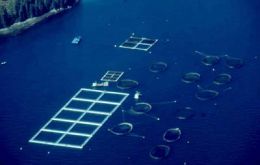
Aquaculture is the world's fastest-growing source of animal protein and currently provides nearly half of all fish consumed globally, according to a report published here by FAO.
